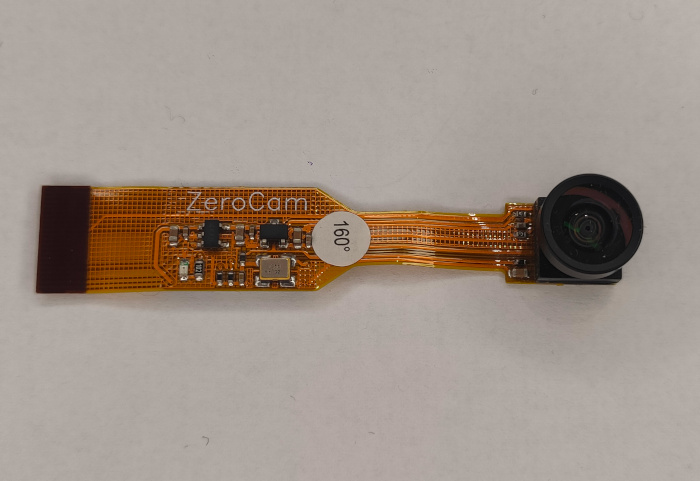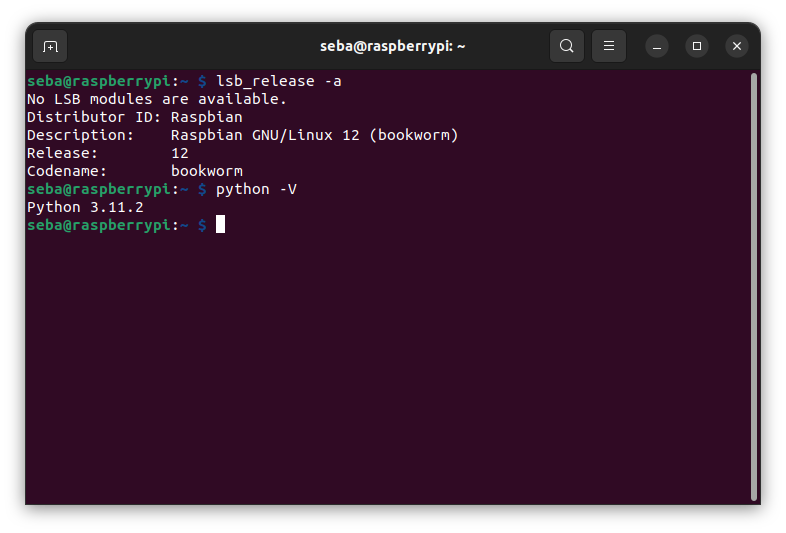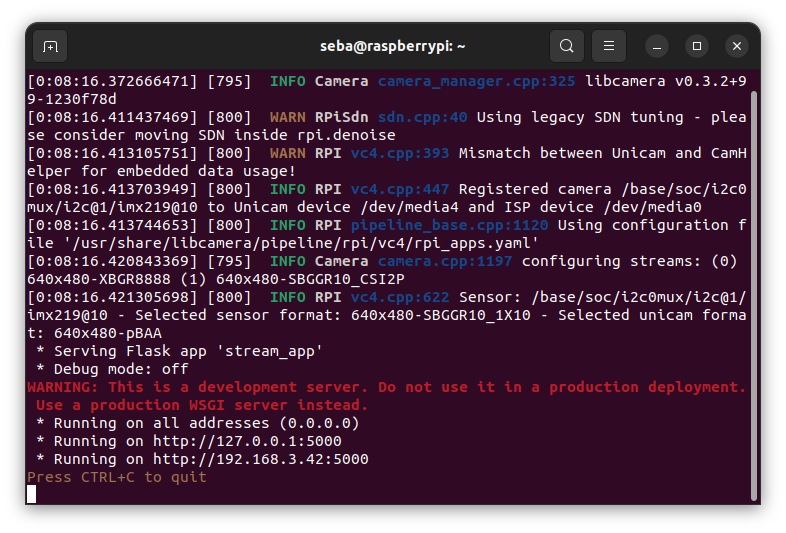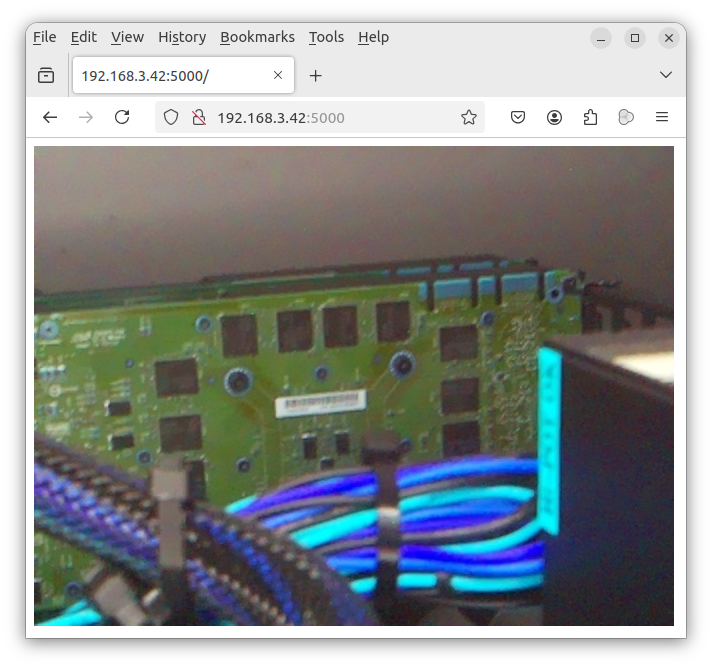Last mod: 2025.01.24
Raspberry Pi Zero - PiCamera Stream
Prerequisites
The libraries used to handle Raspberry Pi cameras have changed, leading to some confusion and inconsistencies. As a result, some libraries work, while others may not function as expected. To address this, I provide a detailed description of the hardware I am using for my examples and specify the software versions to ensure clarity and reproducibility.
Hardware
- Raspberry Pi Zero W
- Camera ZeroCam OV5647 5MPx - fisheye 160°

Software
The tutorial describes how to install packages and run applications on a clean system, only with packages existing after recording the image on the SD card.
The example was run on:
- Raspbian GNU/Linux 12 (bookworm)
- Python 3.11.2

Library installation
Upgrade the system and install the requires libraries:
sudo apt update & sudo apt -y upgrade
sudo apt install -y python3-picamera2 python3-opencv python3-flask
Example application
The script is written in Python and based on the OpenCV and the Flask framework. Create an stream_app.py file with the contnets:
import sys
sys.path.append('/usr/lib/python3/dist-packages')
from flask import Flask, Response
from picamera2 import Picamera2
import cv2
# Initilization PiCamera2
picam2 = Picamera2()
picam2.configure(picam2.create_video_configuration(main={"size": (640, 480)}))
picam2.start()
# Create Flask app
app = Flask(__name__)
def generate_frames():
while True:
# Get frame from camera
frame = picam2.capture_array()
# Image encoding to JPEG format
_, buffer = cv2.imencode('.jpg', frame)
frame = buffer.tobytes()
# MJPEG frame streaming
yield (b'--frame\r\n'
b'Content-Type: image/jpeg\r\n\r\n' + frame + b'\r\n')
@app.route('/video_stream')
def video_feed():
return Response(generate_frames(), mimetype='multipart/x-mixed-replace; boundary=frame')
@app.route('/')
def index():
return "<img src='/video_stream'>"
if __name__ == '__main__':
app.run(host='0.0.0.0', port=5000, debug=False)
Run app:
python stream_app.py
We should see a log similar to:

Next, we can open web browser with adress http://RASPBERRY_PI_IP:5000/ and we should see streaming visdeo in browser:

Sources
https://gitlab.com/dziak.tech/examples/-/tree/main/IoT/RaspberryPiZero_PiCamera
Links
https://www.raspberrypi.com/products/raspberry-pi-zero-w/
https://botland.store/raspberry-pi-cameras/12747-camera-zerocam-ov5647-5mpx-fisheye-160-for-raspberry-pi-zero-5904422319977.html
https://opencv.org/
https://flask.palletsprojects.com/